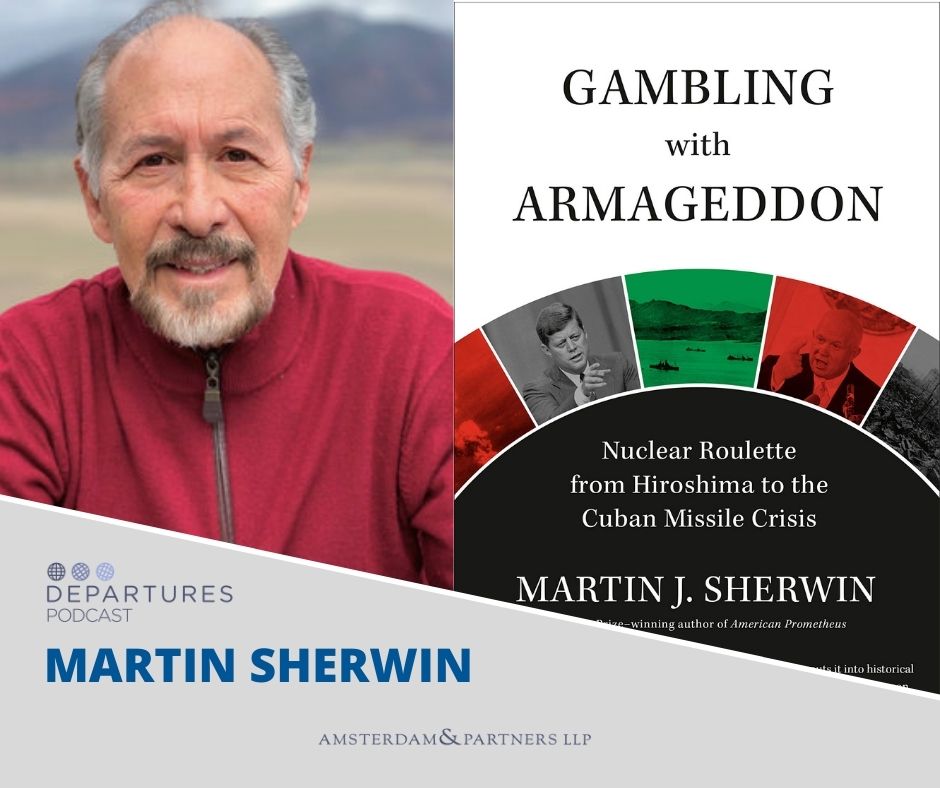Departures Podcast with Martin Sherwin, author of ‘Gambling with Armageddon’

As Kennedy and Khrushchev just barely navigated their way out of a world-destroying nuclear armageddon, there remain many lessons to be explored with regard to statecraft, diplomacy, and decisionmaking in a crisis.
The Pulitzer-winning historian joins the Departures podcast this week to discuss his book, “Gambling with Armageddon: Nuclear Roulette from Hiroshima to the Cuban Missile Crisis,” which not only provides fresh insight into the critical meetings which changed Kennedy’s thinking on the proper response but also explores the deep roots of the crisis, how Washington played with nuclear escalation with a monstrous recklessness.
In his discussion with Amsterdam, Sherwin argues that the disadvantages of nuclear weapons outweigh their advantages, discarding the conventional wisdom that the bombing of Hiroshima was instrumental in Japan’s surrender. Sherwin makes it clear that if the Joint Chiefs of Staff had had their way, the US government would have mounted a full-scale armed invasion of Cuba. But luckily, Kennedy discarded the advice of both his brother and Robert McNamara, instead taking guidance from Adlai Stevenson.











